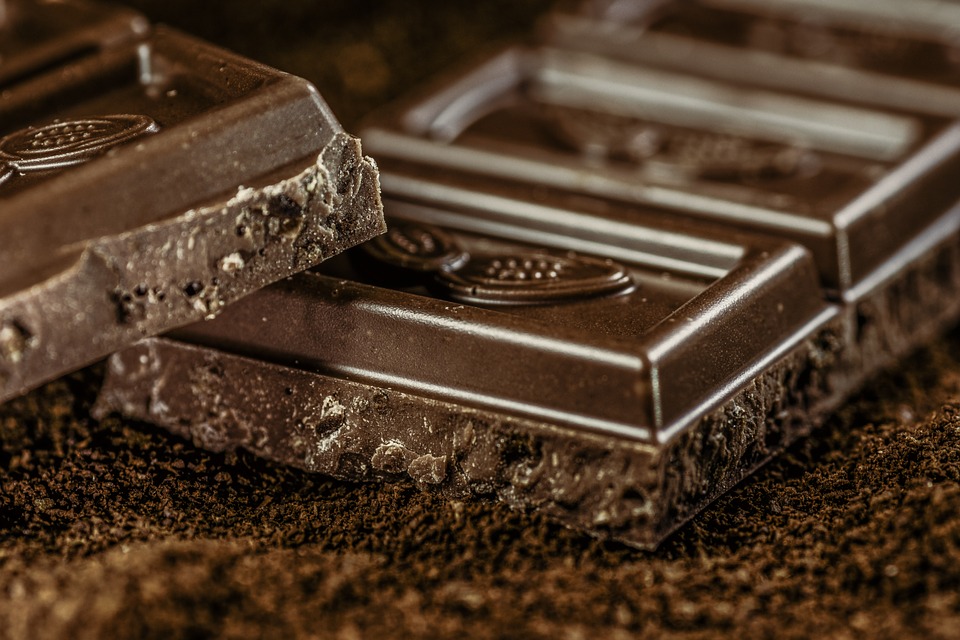Chocolate for longevity: Great grandmother, 102, attributes her long and healthy life to a daily treat of the dark stuff
01/24/2018 / By Michelle Simmons

If you want to reach the age of 100, eat chocolate every day. A great-great grandmother who just turned 102 years old on January 16 said that the key to her healthy long life is a daily dose of chocolate, particularly dark chocolate.
Eunice Modlin from Indiana, U.S.A. shared that eating two pieces of dark chocolate each day is the reason why she reached more than a century old. However, some experts said that chocolate alone is not the “key” to Modlin’s long life.
“There are so many other factors to her long life and chocolate isn’t the only one. Genes, her diet in general… are probably the main reasons,” nutritionist Vanessa Rissetto told Daily Mail Online.
She said that other life-extending factors, such as she never consumed alcohol nor smoked cigarettes, also contributed to her long and healthy life. Modlin also was very athletic during her 20s as she took up archery. In addition, she eats a healthy diet of vegetables that are grown in her garden. Furthermore, having a long life may be in her genes because she is not the only person in her family that is living a long life. In fact, she has a younger brother who is 101 years old.
Tammy Gentry told Today that the centenarian is still in good health, although she is losing her eyesight. Modlin has four children, seven grandchildren, 14 great-grandchildren, and 11 great-great grandchildren.
Chocolate continuously gains popularity because of its health benefits that studies have suggested. A study in 2015, published in the journal The BMJ, discovered that people who ate a small bar of chocolate every day have 23 percent lesser chance of having a stroke, and 11 percent lesser chance of developing cardiovascular disease, compared to those who did not eat chocolate at all. In another study, published in the journal Appetite in 2016, it was found that those who eat chocolate at least once per week were less likely to develop diabetes five years later.
Rissetto explained that chocolate contains antioxidant and anti-inflammatory properties that are believed to come from a class of plant nutrients found in cocoa beans known as flavonoids. Moreover, it is also rich in fat, so eating too much of it per day will cause clogged arteries. Most scientists agree that the recommended daily intake of dark chocolate is about 30 grams (g) to 60 g or around one to two ounces. (Related: Dark chocolate is brimming with antioxidants and heart-healthy properties, research finds.)
However, she also said that chocolate differs depending on how a chocolate bar is made and its ingredients. The amount of flavonoids in varieties of chocolates differ – dark chocolate has more flavonoids than milk chocolate. Meanwhile, white chocolate, which do not really contain chocolate, is not a good source of flavonoids.
Dark chocolate and the aging process
Even though dark chocolate is not solely responsible for the long and healthy life of Modlin, a study found that dark chocolate can reverse aging. The study was carried out by a team of researchers from the University of California San Diego School of Medicine. In the study, they looked at the effect of epicatechin against oxidative stress and neuroinflammation – which are responsible in the development of neurodegenerative diseases such as Alzheimer’s disease. They administered epicatechin, a flavanol found in dark chocolate, to rats for two weeks.
The findings of the study revealed that the treatment reduced the levels of oxidative stress and neuroinflammation. In addition, it improved their memory and anxiety levels. The researchers suggest that their findings may contribute to a better understanding of the beneficial effects of dark chocolate to a person’s memory.
Read more stories on the health benefits of chocolate at Chocolate.news.
Sources include:
Submit a correction >>
Tagged Under:
Cacao, Chocolate, dark chocolate, long life, longevity, old age, raw food
This article may contain statements that reflect the opinion of the author
RECENT NEWS & ARTICLES
LongevityScienceNews.com is a fact-based public education website published by Longevity Science News Features, LLC.
All content copyright © 2018 by Longevity Science News Features, LLC.
Contact Us with Tips or Corrections
All trademarks, registered trademarks and servicemarks mentioned on this site are the property of their respective owners.




















